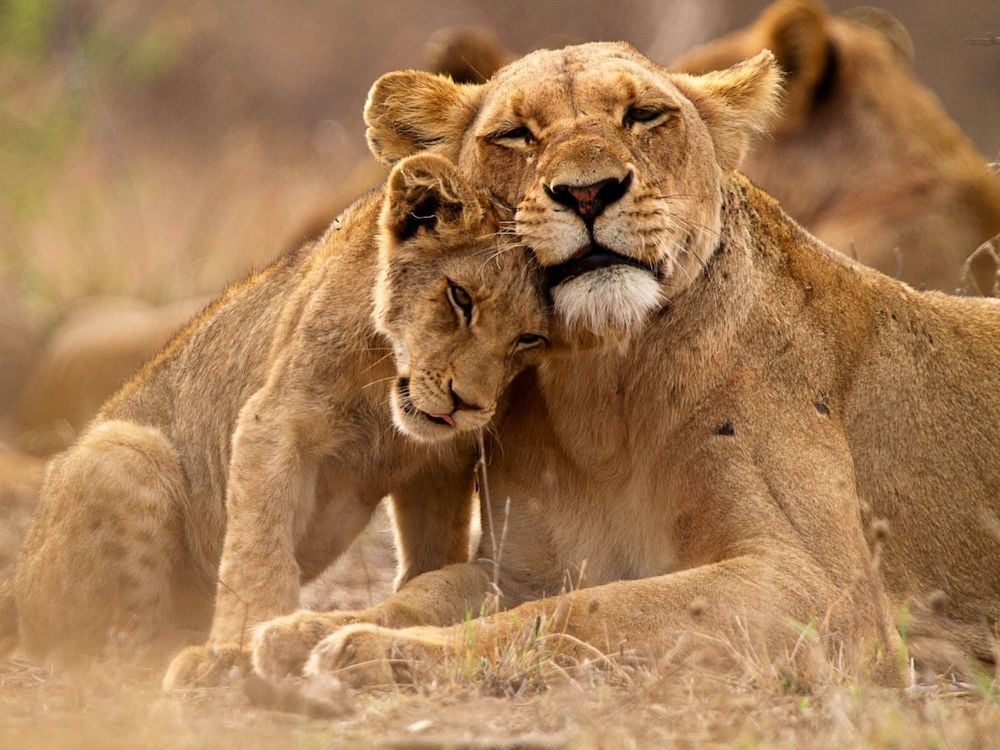It’s an idea we’ve played with since Aesop told his fable about the tortoise and the hare: that animals are as conscious and self-aware as we are. An enormous part of our culture is built around cartoons showing very articulate cats, dogs, rabbits, pigs and mice, all interacting like human beings.
These are stories we tell our children in part to identify some kinds of behaviour as “animal,” like Wile E. Coyote’s futile pursuit of the Road Runner or the greed of the Big Bad Wolf. Humans, we tell our children, should be superior to beasts. We’ve worked hard to define ourselves as above and apart from the animal world.
That attitude has been entrenched in western culture for centuries. Some of us were taught that we had dominion over all the creatures of the world. The concept of the Great Chain of Being lent theological clout to politics: from God to worms, everyone had an unchanging place in the chain. Humans were fortunate to be just below the angels and far above the animals.
Consciousness itself comes from the Latin words for “with knowledge,” though we still lack the knowledge to define consciousness itself. The great 17th-century philosopher René Descartes gave it a try: “I think, therefore I am.” He argued that animals were mere “automata,” meat robots that couldn’t think or feel anything. His contemporary Baruch Spinoza asserted that animals might have some kind of conscious awareness, but that trait should be no hindrance if humans chose to kill them for food or exploit them for labour.
That’s about where we’ve stayed for centuries. We attribute some degree of consciousness to our pets or fellow predators, like wolves and tigers. We recognize the intelligence of the great apes, the chimpanzees, gorillas and orangutans. Ravens’ brains have made them tricksters in many mythologies for thousands of years. We’ve recently grasped that octopuses are very smart and orca mothers are capable of grief.
Now some 21st-century philosophers and scientists have jettisoned Descartes and Spinoza and challenged us to admit what we’ve preferred to deny: that animals, even insects, are sentient.
Not only conscious, but self-aware.
‘Strong scientific support for conscious experience’
On April 19, these scholars published the New York Declaration on Animal Consciousness at a conference at New York University. It was notably concise:
Which animals have the capacity for conscious experience? While much uncertainty remains, some points of wide agreement have emerged.First, there is strong scientific support for attributions of conscious experience to other mammals and to birds.
Second, the empirical evidence indicates at least a realistic possibility of conscious experience in all vertebrates (including reptiles, amphibians, and fishes) and many invertebrates (including, at minimum, cephalopod mollusks, decapod crustaceans, and insects).
Third, when there is a realistic possibility of conscious experience in an animal, it is irresponsible to ignore that possibility in decisions affecting that animal. We should consider welfare risks and use the evidence to inform our responses to these risks.
Bumblebees just want to have fun
To back up these assertions, the scholars offered a broad range of evidence. Octopuses avoid pain and prefer places where they have experienced pain relief. A fish called the cleaner wrasse can recognize itself in a mirror. Zebrafish seem eager to obtain new information, and bumblebees like to roll balls around, just for fun. Fruit flies have two kinds of sleep, “active” and “quiet,” which, like our own sleep patterns, serve different purposes.
The scholars don’t say that such behaviour is “proof” or “conclusive evidence.” “However,” they write, “it is entirely appropriate to interpret these remarkable displays of learning, memory, planning, problem-solving, self-awareness, and other such capacities as evidence of consciousness in cases where the same behaviour, if found in a human or other mammal, would be well explained by conscious processing.”
The scholars say one purpose of the declaration is “to convey the excitement of the emerging science of animal consciousness” and to advance our understanding of consciousness itself. Another purpose is “to encourage reflection on animal welfare.”
The scholars explain: “Certainty about consciousness should not be required for consideration of welfare risks.” If an animal may be conscious, they say, we should consider that possibility when we make policy about it. For example, if we have evidence that octopuses can suffer, that possibility should influence whether to support octopus farming. “Policymakers should take reasonable steps to mitigate welfare risks for all vertebrates and many invertebrates as researchers seek to advance our understanding of them.”
A great chain, or a damaged net?
This is a very dry, bureaucratic way to say we need to reconsider our place in the Great Chain of Being, and to redefine it as a net we have been tearing holes in. If animals, including insects, are not just automatons but self-aware entities, we face some serious ethical issues.
According to one estimate, 30 per cent of the planet’s biomass of large mammals is human beings, 67 per cent is our livestock, and just three per cent is wild animals.
If our sheep and cattle are as conscious and self-aware as we are, can we exploit, kill and eat them with a clear conscience? Can we shoot a tiger and further reduce a self-aware wild species? Can we farm octopuses, whose intelligence and self-awareness are widely accepted? Can we rob the bees of their honey?
An easy answer is that we certainly can, and can continue to do so just as we have for thousands of years. Life preys on life. Whatever the tender maternal yearnings of a mosquito, I will swat her if I can.
A harder answer, implicit in the declaration, is that we ourselves should be more self-conscious, more self-aware, when we deal with other creatures. We can’t slaughter a sheep just because we don’t think it’s as aware as we are. On its own terms, the sheep is fully aware, and knows as much about its world as we know about ours. If we choose to slaughter it, we should do so in the full knowledge that we are ending the life of a conscious being.
Life as a waking nightmare
Similarly, we should recognize that using animals as test subjects for medicines intended for humans may extinguish minds that perceive us more keenly than we perceive them. Crowding hens or pigs into barns may result in cheaper eggs or pork chops, but it must make their brief lives little more than nightmares.
If instead we actually tried to know the minds of the creatures around us, to become “other-aware,” we would expand our own conscious awareness. We could glimpse the world through a bumblebee’s multi-faceted eyes, or those of an osprey. Though the dreams of fruit flies might remain unknown to us, it would be something to know that they dream at all.
One welcome side-effect of our expanded consciousness might be to realize that other humans could be as conscious, aware and capable of suffering as we ourselves. In conflicts within our own species, we’re quick to dehumanize our adversaries, to reduce them to the level of animals.
But if animals themselves are also self-aware, how can we kill our adversaries with a clear conscience, when we don’t even intend to eat them? ![]()
Read more: Environment

















Tyee Commenting Guidelines
Comments that violate guidelines risk being deleted, and violations may result in a temporary or permanent user ban. Maintain the spirit of good conversation to stay in the discussion and be patient with moderators. Comments are reviewed regularly but not in real time.
Do:
Do not: